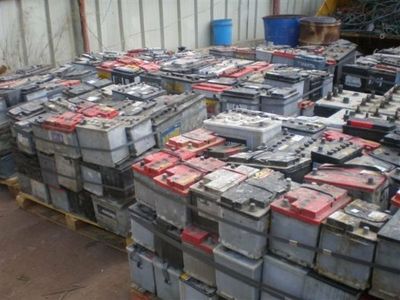DALLAS March 5, 2016; RSR Corporation commends reporter Joby Warrick, Mexico City Bureau Chief Joshua Parlow, Lizzie Hart, and the editors at the Washington Post for their hard-hitting expose of spent lead acid battery exports to Mexico. The Washington Post's landmark article,"A Dangerous Export" is a timely and much overdue examination of a practice that is poisoning Mexican communities on a daily basis, and completely avoidable given the domestic capacity to recycle batteries by hard-working Americans.
"Joby Warrick and his colleagues have put a human face on a problem that has far too long been ignored," said Robert Finn, CEO of RSR Corporation, a domestic secondary lead smelter opposing the export trade. "For the first time, we go beyond statistics to see the faces and hear the stories of innocent men, women, and children who are being poisoned by the improper recycling of lead acid car and truck batteries." Finn added that, "what is even more troubling is that a significant portion of these batteries are from U.S. government vehicles. Our government has no idea whether their scrap batteries are recycled in highly regulated U.S. smelters, or shipped to the types of smelters highlighted in the Washington Post story. Our government does not know whether the lead refined from its batteries sent to Mexico is returned to the U.S."
The Washington Post's story exposes the practice of many U.S. companies, including "big box" retailers,of exporting massive numbers of spent lead acid car and truck batteries from the United States to poorly regulated Mexican smelters. The article notes that these smelters operate under environmental protections that are decades behind those in the United States or Canada. It is estimated that 20 percent of batteries handed over for recycling by American businesses and consumers in the U.S. travels across the border to be recycled in Mexico at facilities ranging from illegal open air backyard battery crushers, to smelters that take full advantage of lax environmental and worker safety regulations in Mexico. This practice is all the more tragic when U.S. businesses are ready, willing, and able to recycle these batteries in the U.S., and to do so in a way that protects workers and the environment.
"The American battery smelting industry and the federal government share a moral obligation to put an end to the export trade in batteries with the types of facilities highlighted in this article," Finn stated. "We hope this article will spur real, meaningful action by big box retailers, the federal government, and others to end to this unconscionable and dangerous practice. Scrap batteries that originate in the U.S. should be recycled in the U.S."
About RSR Corporation
RSR Corporation is a privately held secondary lead smelting company that operates lead acid battery recycling facilities in California, Indiana, and New York. RSR uses state-of-the-art Wet Electrostatic Precipitator (WESP) technology and a highly trained workforce to ensure the lead acid batteries we recycle into refined lead do not harm the environment, employees, or the communities in which we work.



